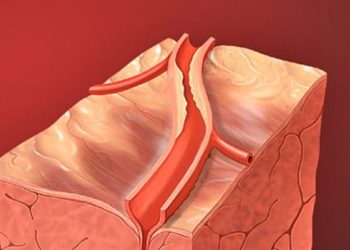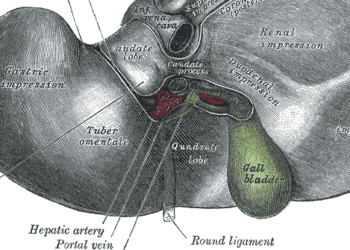Evolocumab significantly reduces LDL cholesterol in familial hypercholesterolemia patients [TESLA-B and RUTHERFORD-2 studies]
1. [TESLA-B study]: In patients with homozygous familial hypercholesterolemia, evolocumab significantly reduced LDL cholesterol levels. The regimen was well-tolerated with no serious adverse events reported in 33 patients.
2. [RUTHERFORD-2 study]: In patients with heterozygous familial hypercholesterolemia, evolocumab significantly reduced LDL cholesterol levels. Among the 220 patients receiving evolocumab, there were seven severe events later determined to be unrelated to evolocumab.
Evidence Rating Level: 1 (Excellent)
Study Rundown: Familial hypercholesterolemia is an autosomal dominant disorder that affects the LDL receptors, which are the primary work force for hepatic LDL uptake and clearing from the plasma. Patients with this condition have severely elevated LDL cholesterol levels and suffer significant mortality and morbidity from cardiovascular disease. Homozygous carriers often do not survive beyond age 30. The current treatment of choice is pharmacological agents that lower LDL cholesterol. Recent research efforts have focused on developing novel PCSK9 inhibitors as a means to further lower LDL cholesterol. Evolocumab, an anti-PCSK-9 monoclonal antibody, is one such agent. Results of two randomized-controlled trials were reported today in the Lancet: in the TESLA-B study, patients with homozygous familial hypercholesterolemia treated with evolocumab saw a 30% drop in LDL cholesterol levels at 12 weeks compared to placebo, with no serious adverse events; in the RUTHERFORD-2 study, patients with heterozygous familial hypercholesterolemia treated with evolocumab saw a 60% drop in LDL cholesterol levels at 12 weeks compared to placebo, with no severe events related to evolocumab. Both trials were well-designed double-blind trials. One limitation is that net clinical outcomes, such as reductions in cardiovascular death, were not among the primary endpoints. As a result, large-scale studies of much longer follow-up periods are needed to determine the clinical benefits of evolocumab.
Both studies are funded by Amgen Inc.
Click to read the TESLA-B study, published today in The Lancet
Click to read the RUTHERFORD-2 study, published today in The Lancet
In-Depth [randomized controlled trials]: The TESLA-B study was a phase 3 randomized controlled trial. 49 patients with homozygous familial hypercholesterolemia were randomized 2:1 to receive either evolocumab 420 mg subQ q4wks or placebo for 12 weeks. The primary endpoint was percentage change from baseline in ultracentrifugation LDL cholesterol at week 12. At week 12, the least-squares mean percentage reduction in LDL cholesterol from baseline was 23.1% (95% confidence interval, CI, -30.7 to -15.4) in the evolocumab group, representing a reduction versus placebo of 30.9% (95% CI, -43.9 to -18.0, adjusted p<0.0001). The regimen was generally well-tolerated. There were no serious adverse events. The most frequently reported adverse events in the evolocumab group were upper respiratory tract infection (3 patients) and influenza (3 patients). No anti-evolocumab antibody development was detected during the study period.
The RUTHERFORD-2 study was a phase 3 randomized controlled trial. 331 patients with heterozygous familial hypercholesterolemia were randomized 2:2:1:1 to receive the following regimens: evolocumab 140 mg subQ q2wks, evolocumab 420 mg subQ monthly, placebo q2wks, or placebo monthly. The coprimary endpoints were percentage change in plasma LDL cholesterol from baseline to week 12 and at the mean of weeks 10 and 12. Compared to placebo, evolocumab 140 mg q2wks group saw mean reductions in LDL cholesterol at week 12 of 59.2% (95% CI, 53.4-65.1) and reductions at the mean of weeks 10 and 12 of 60.2% (95% CI, 54.5-65.8) (both p<0.0001). The group receiving evolocumab 420 mg monthly injections saw mean reductions in LDL cholesterol at week 12 of 61.3% (95% CI, 53.6-69.0) and the mean of weeks 10 and 12 reduction of 65.6% (95% CI, 59.8-71.3) (both p<0.0001). The rates of adverse events were similar between the evolocumab and placebo groups. There were 7 serious adverse events later determined to be unrelated to evolocumab administration.
More from this author: New dengue fever vaccine effective in phase 3 trial, Insulin pumps more effective than multiple daily injections in type II diabetics [OpT2mise trial], Heart attack hospitalization rate in China quadruples from 2001-2011, Vitamin D supplementation does not reduce risk of falls, ¹⁸F-FDG PET brain imaging could predict recovery in vegetative patients
Image: PD
©2012-2014 2minutemedicine.com. All rights reserved. No works may be reproduced without expressed written consent from 2minutemedicine.com. Disclaimer: We present factual information directly from peer reviewed medical journals. No post should be construed as medical advice and is not intended as such by the authors, editors, staff or by 2minutemedicine.com. PLEASE SEE A HEALTHCARE PROVIDER IN YOUR AREA IF YOU SEEK MEDICAL ADVICE OF ANY SORT.







